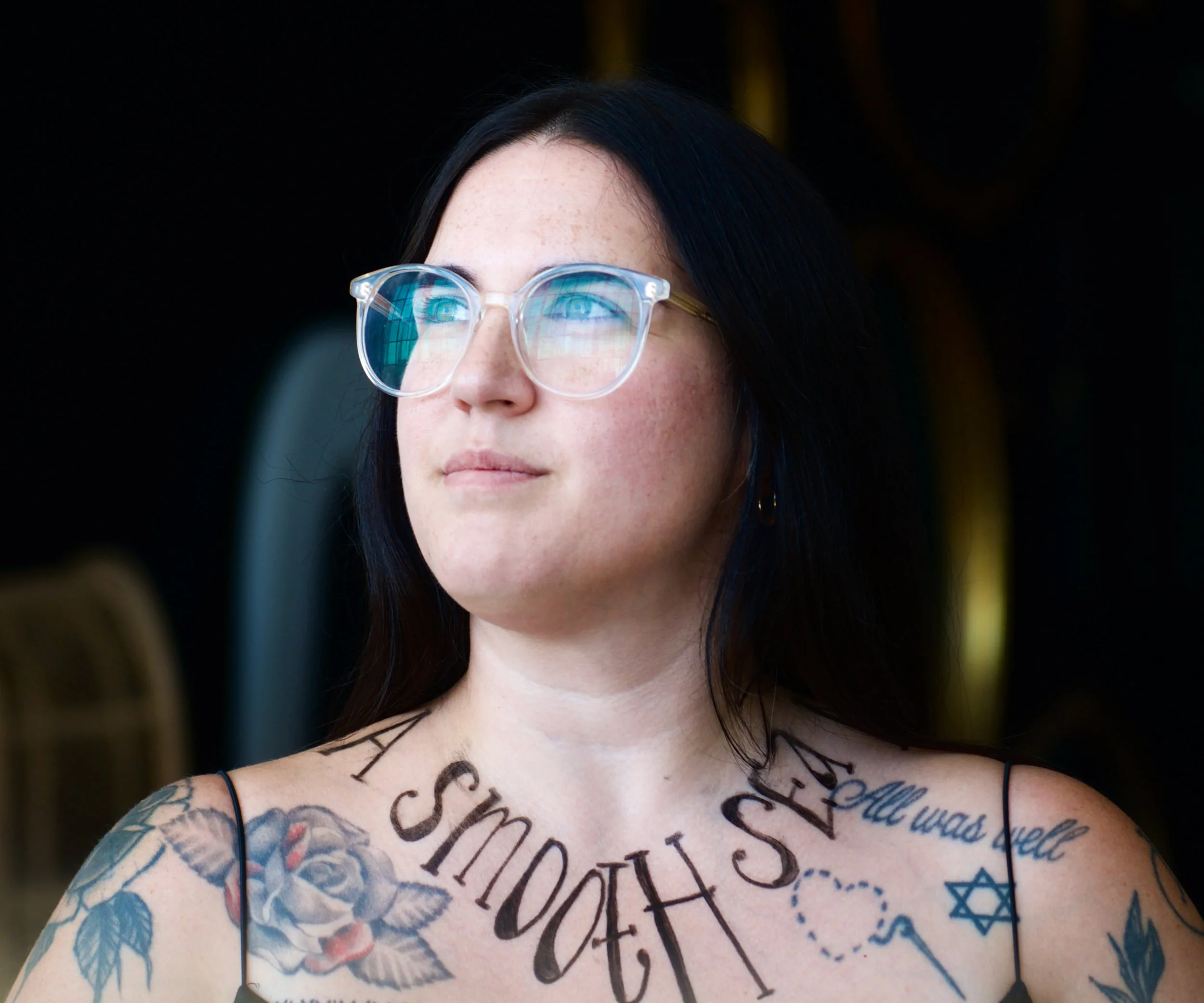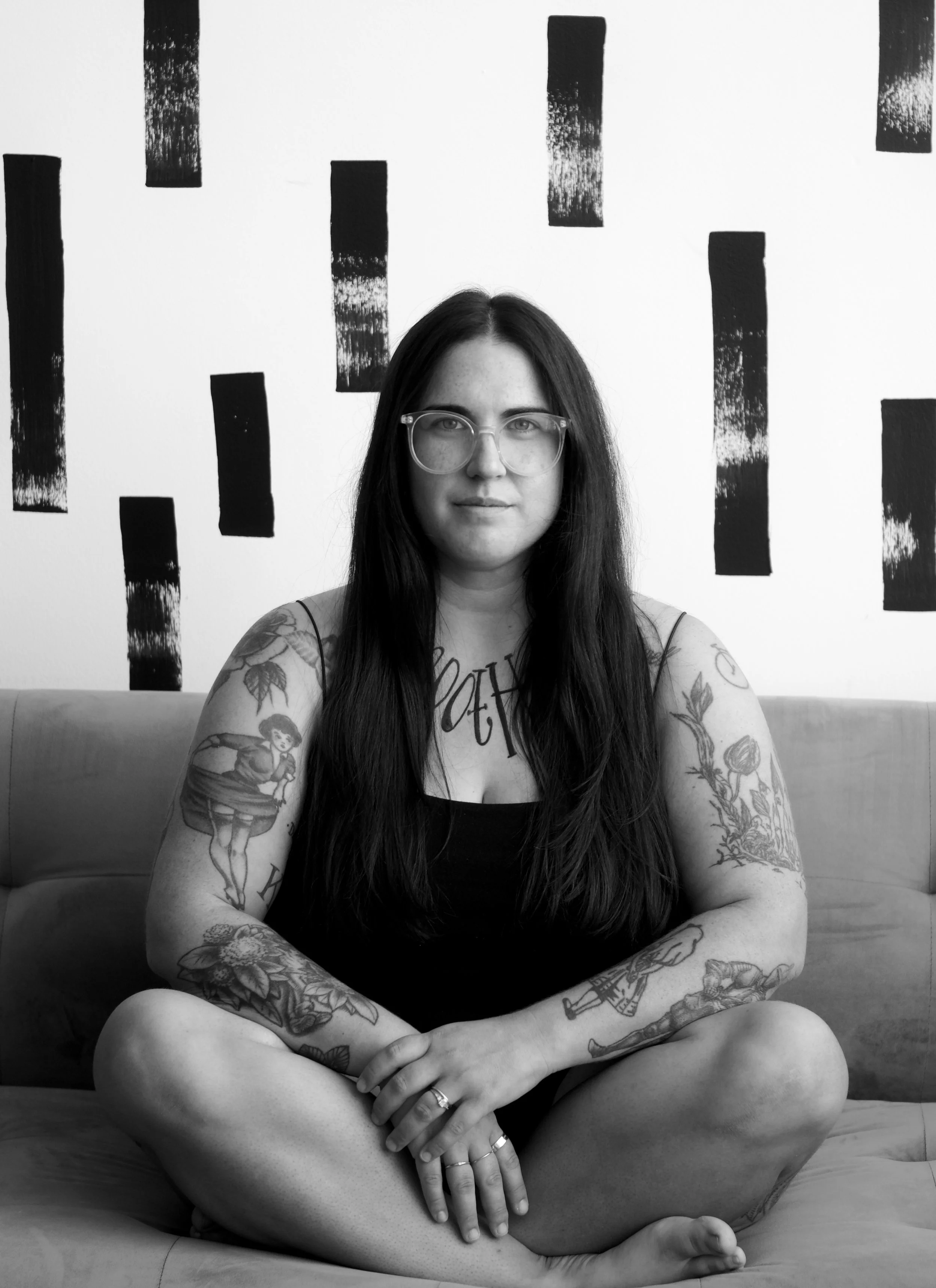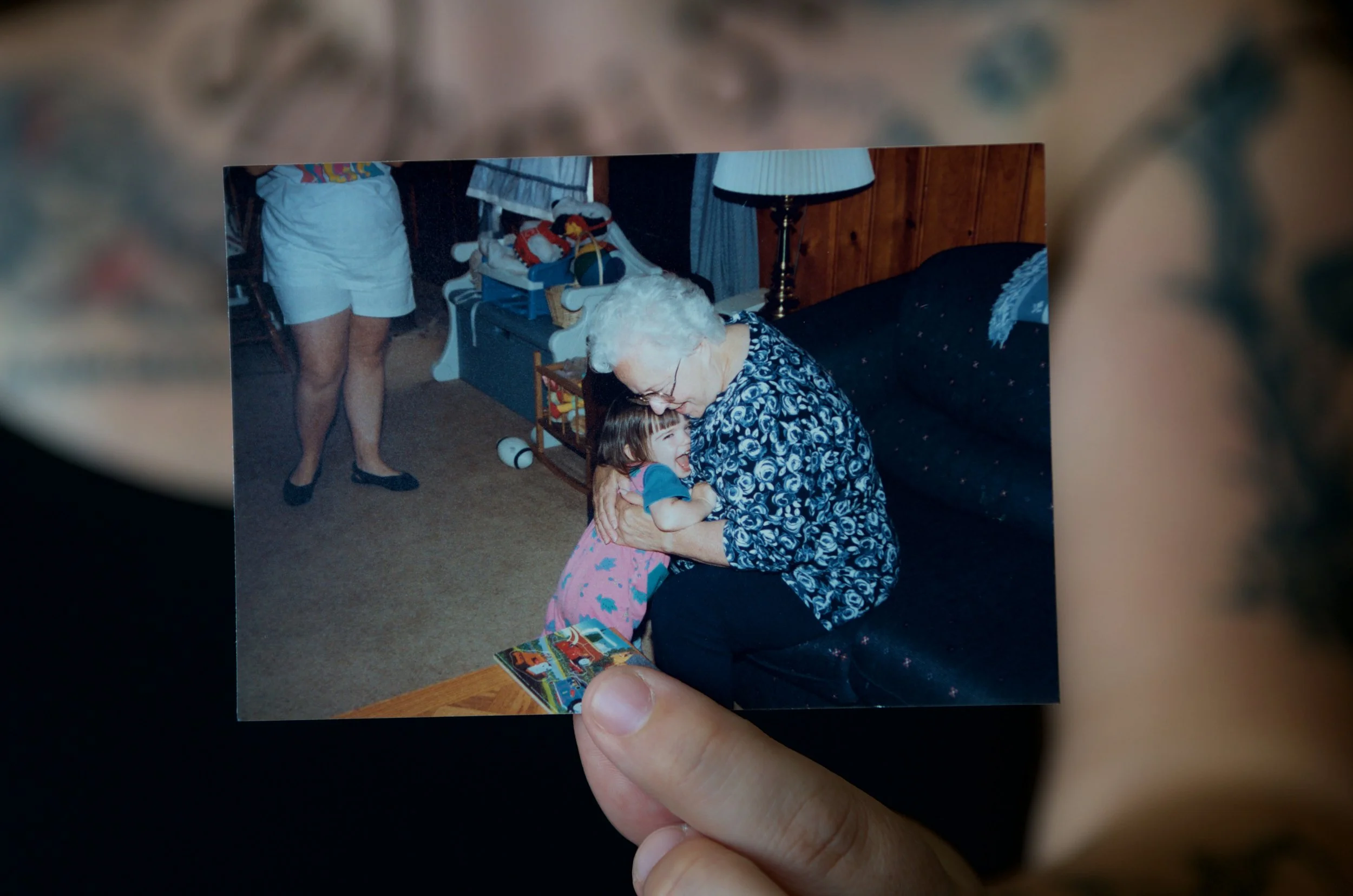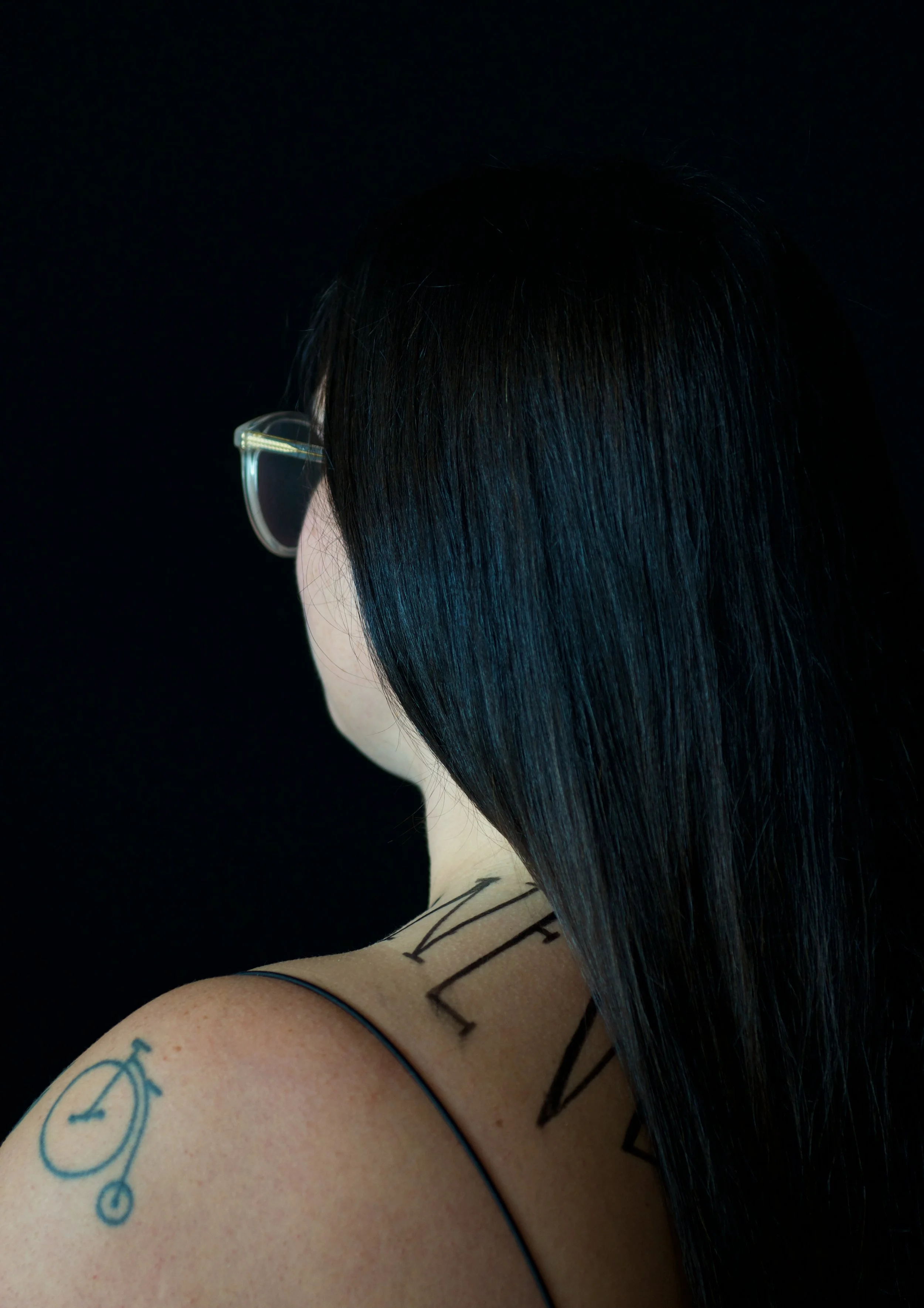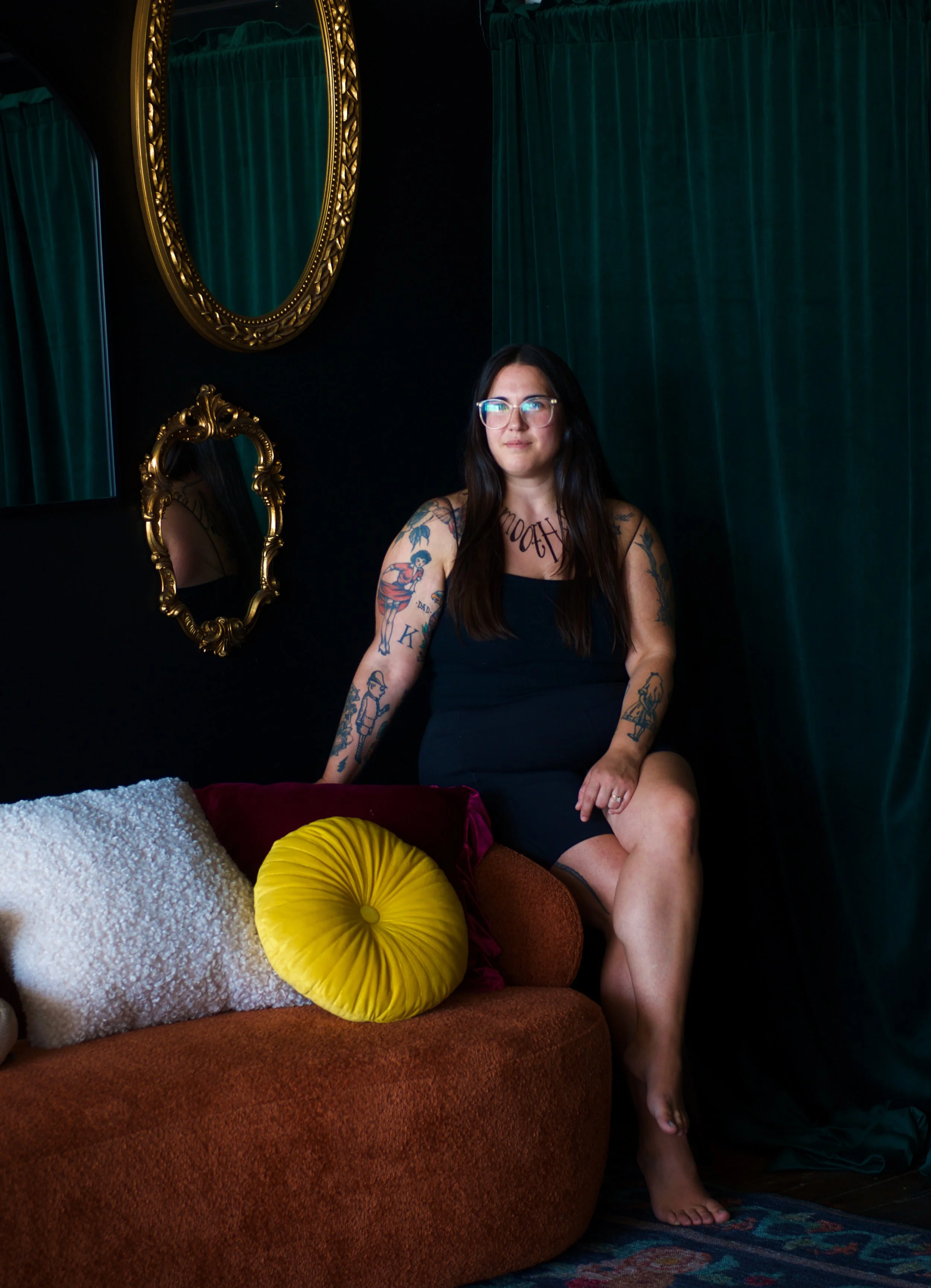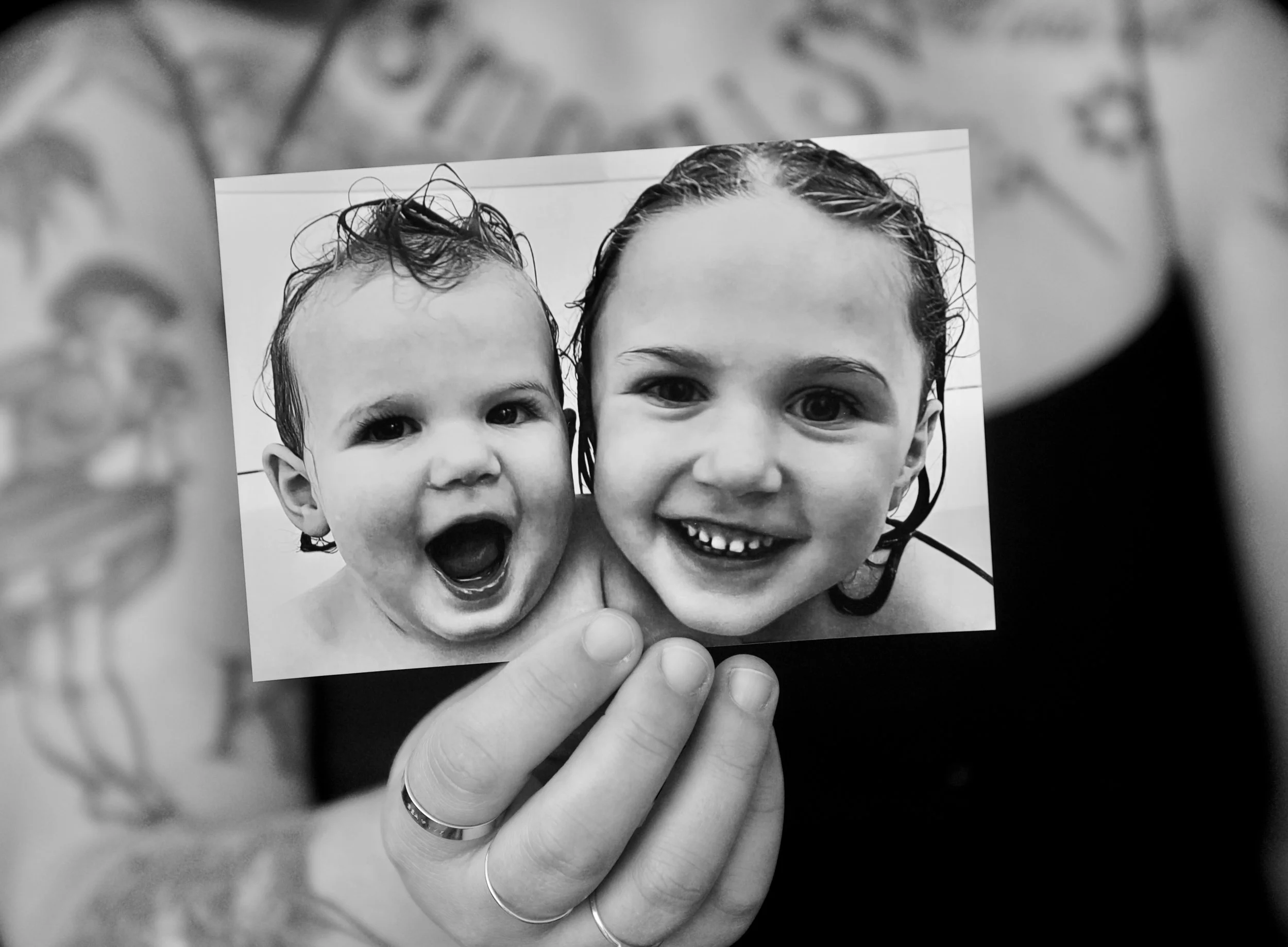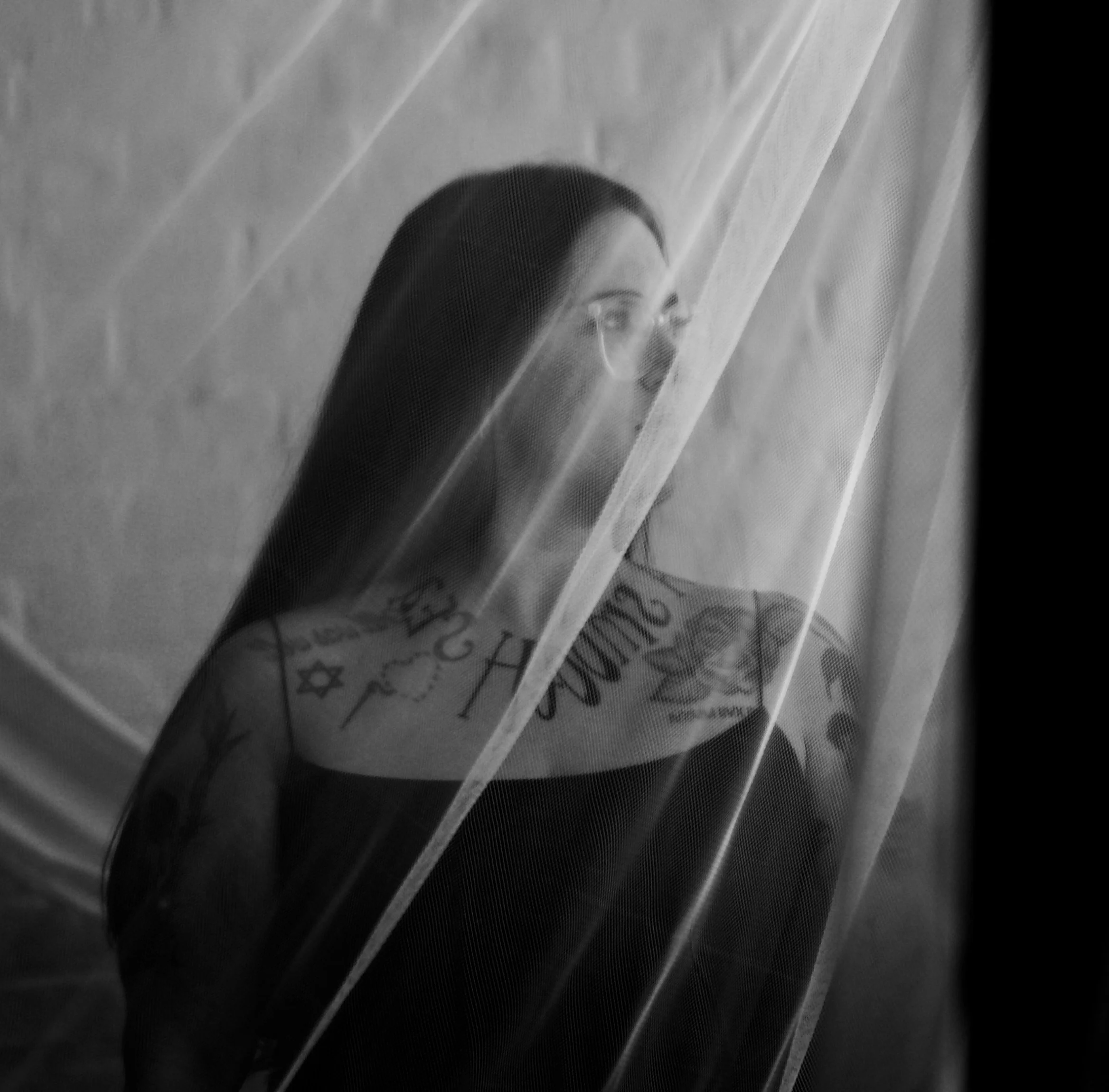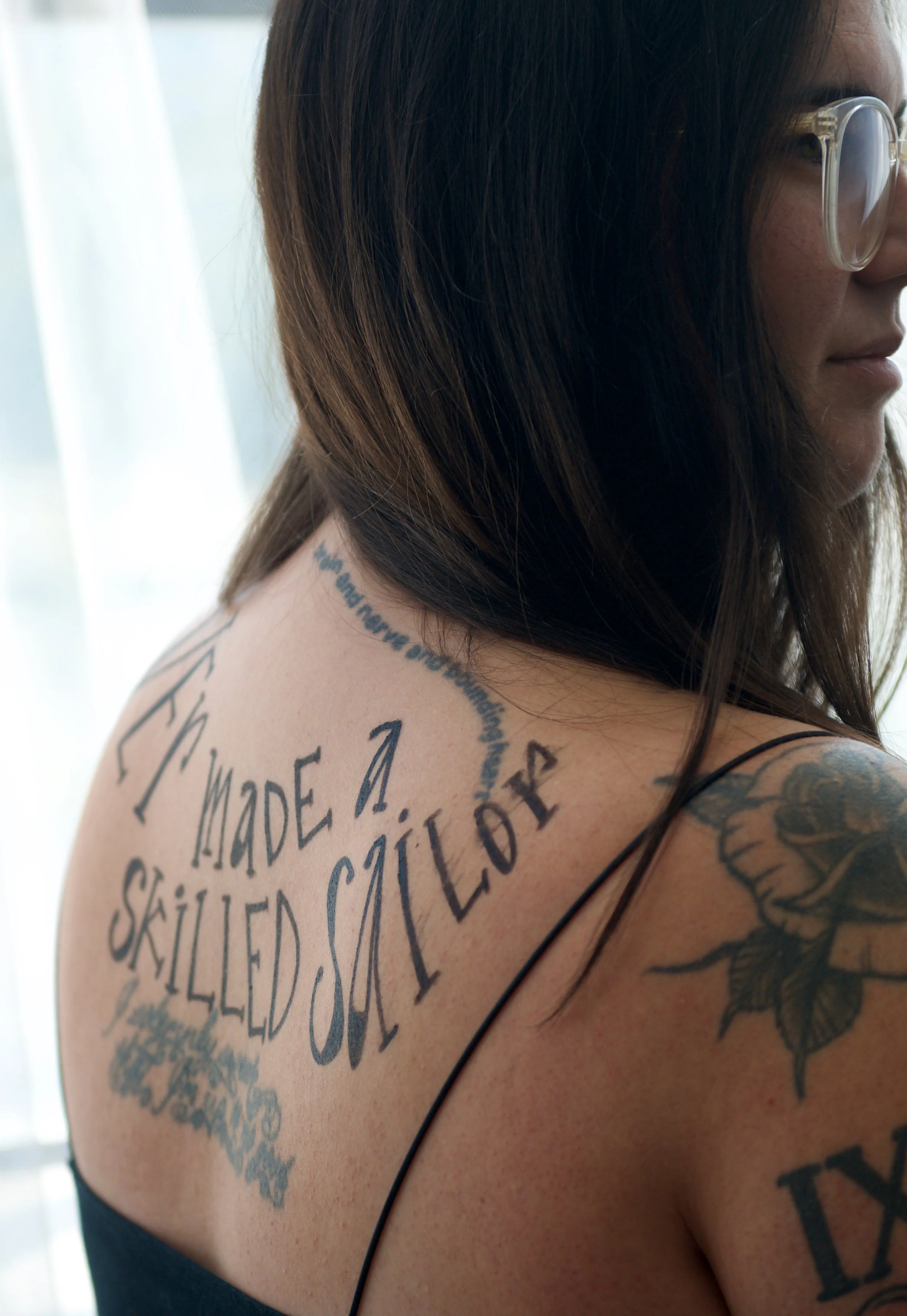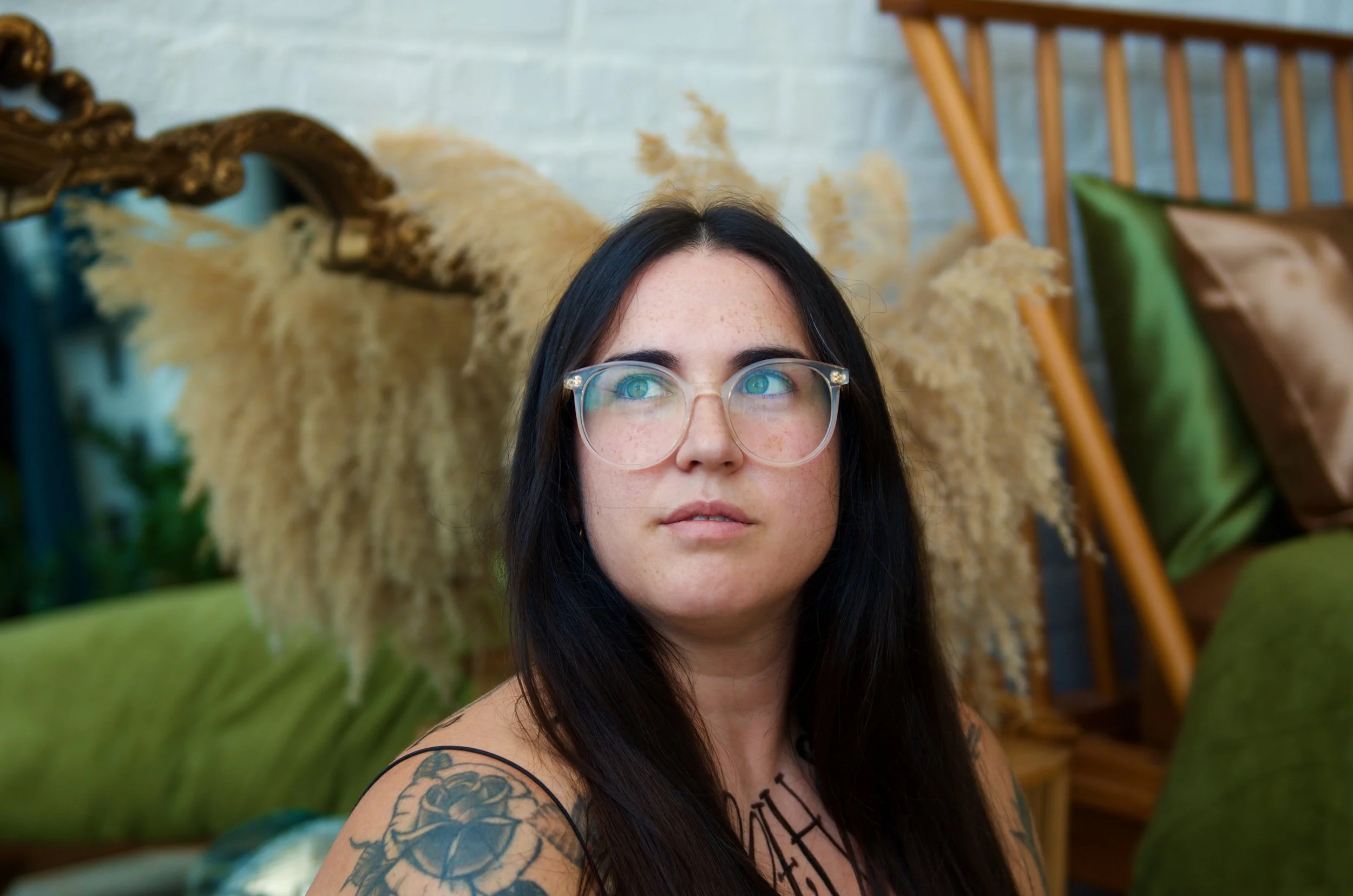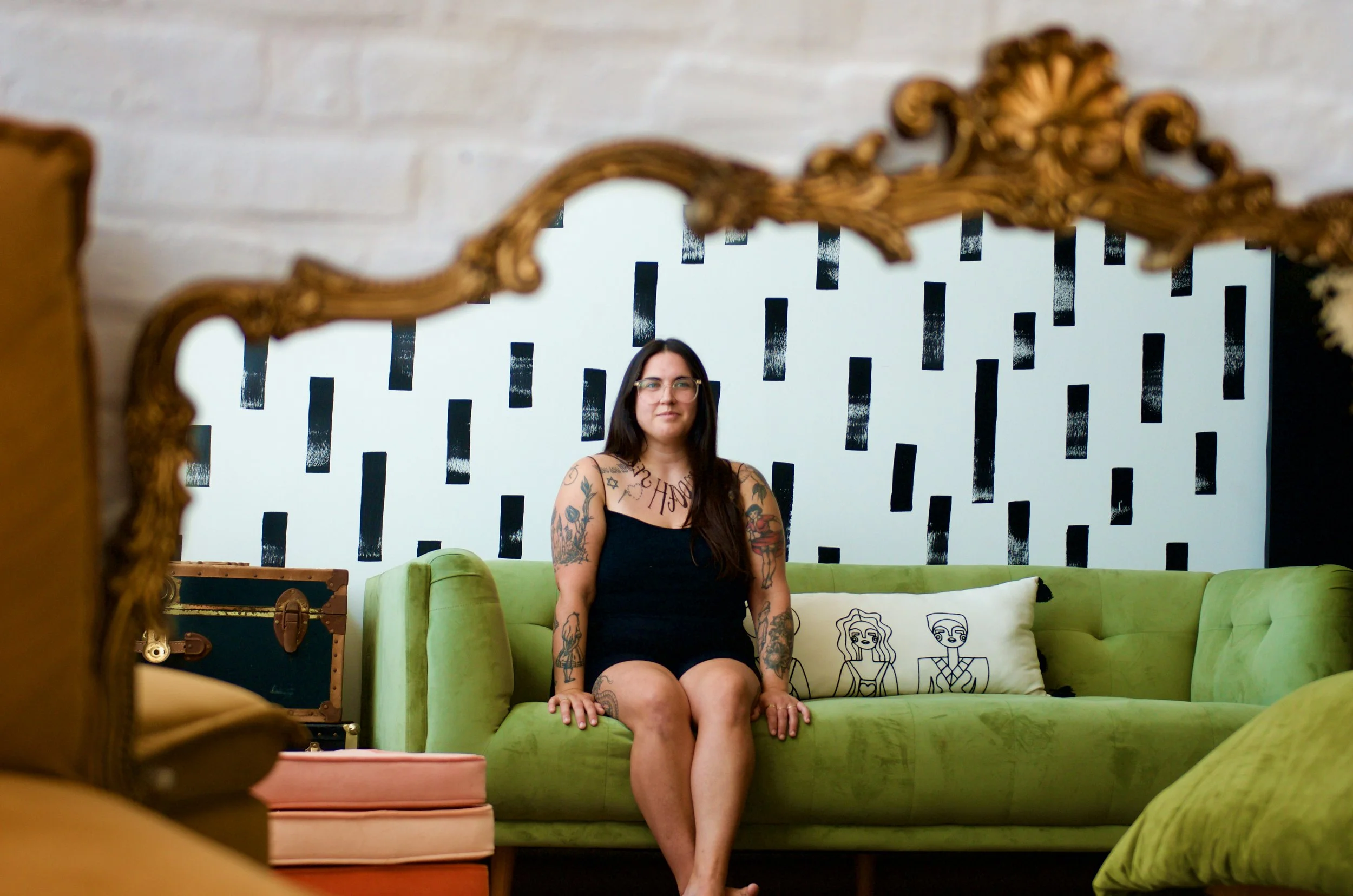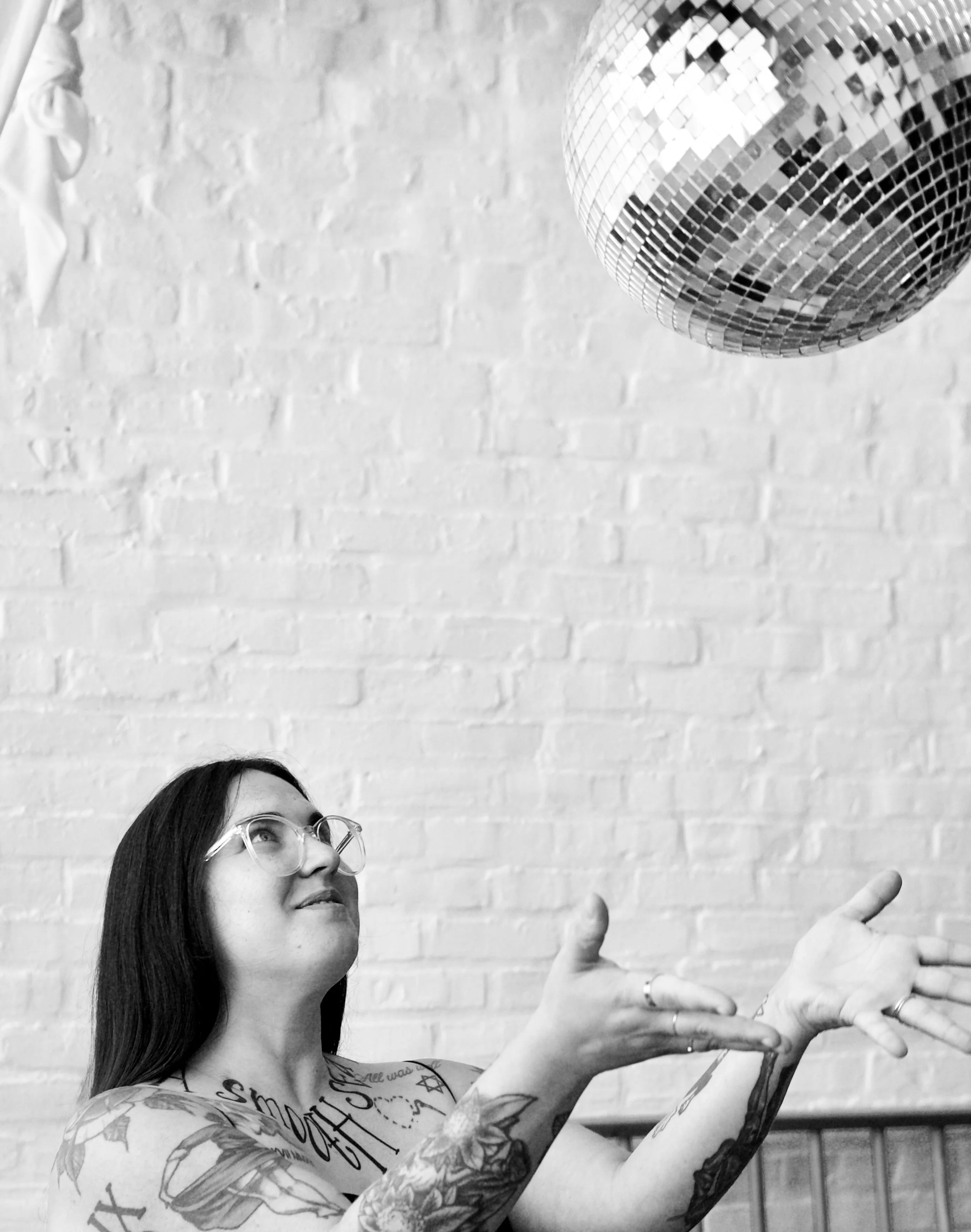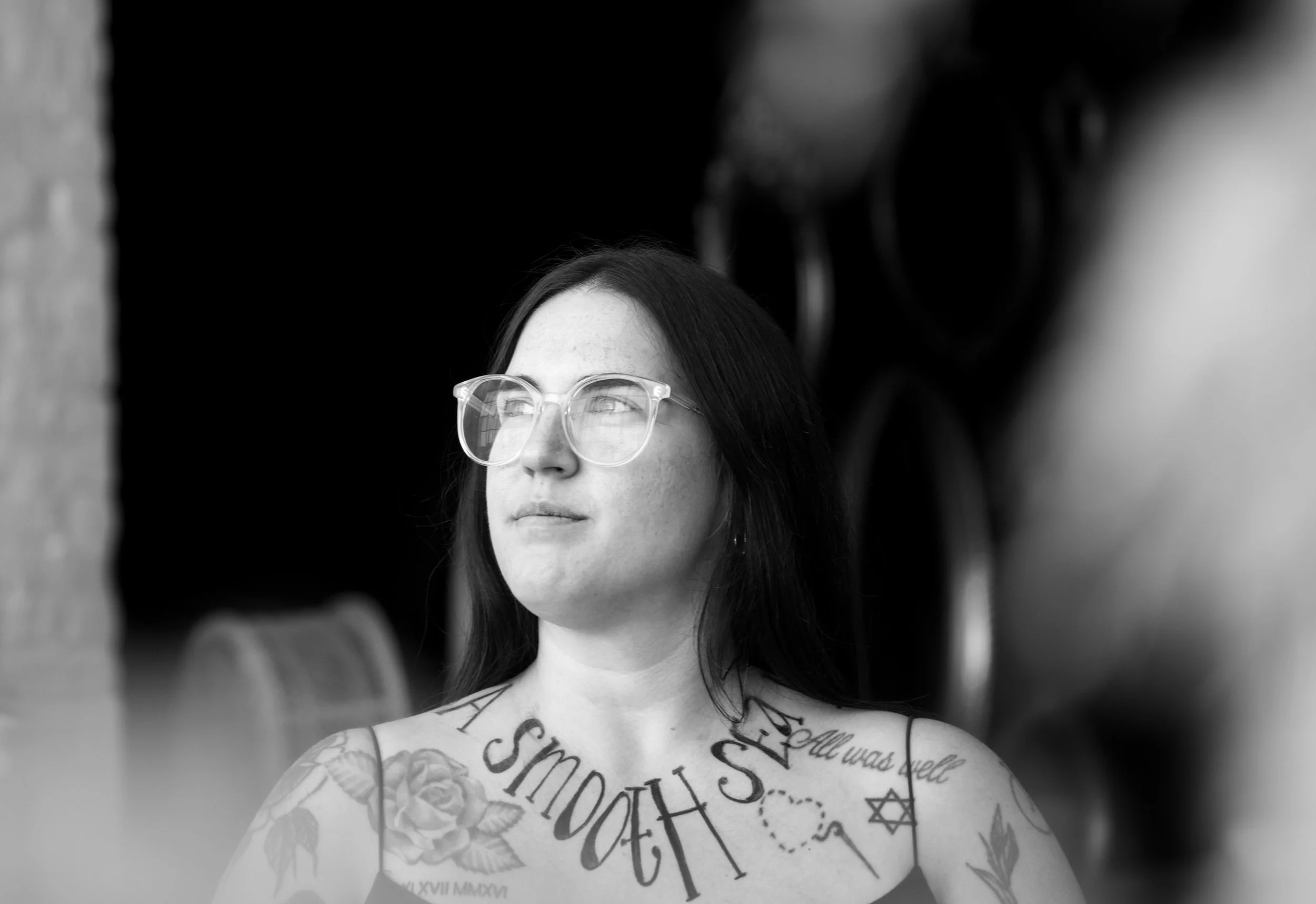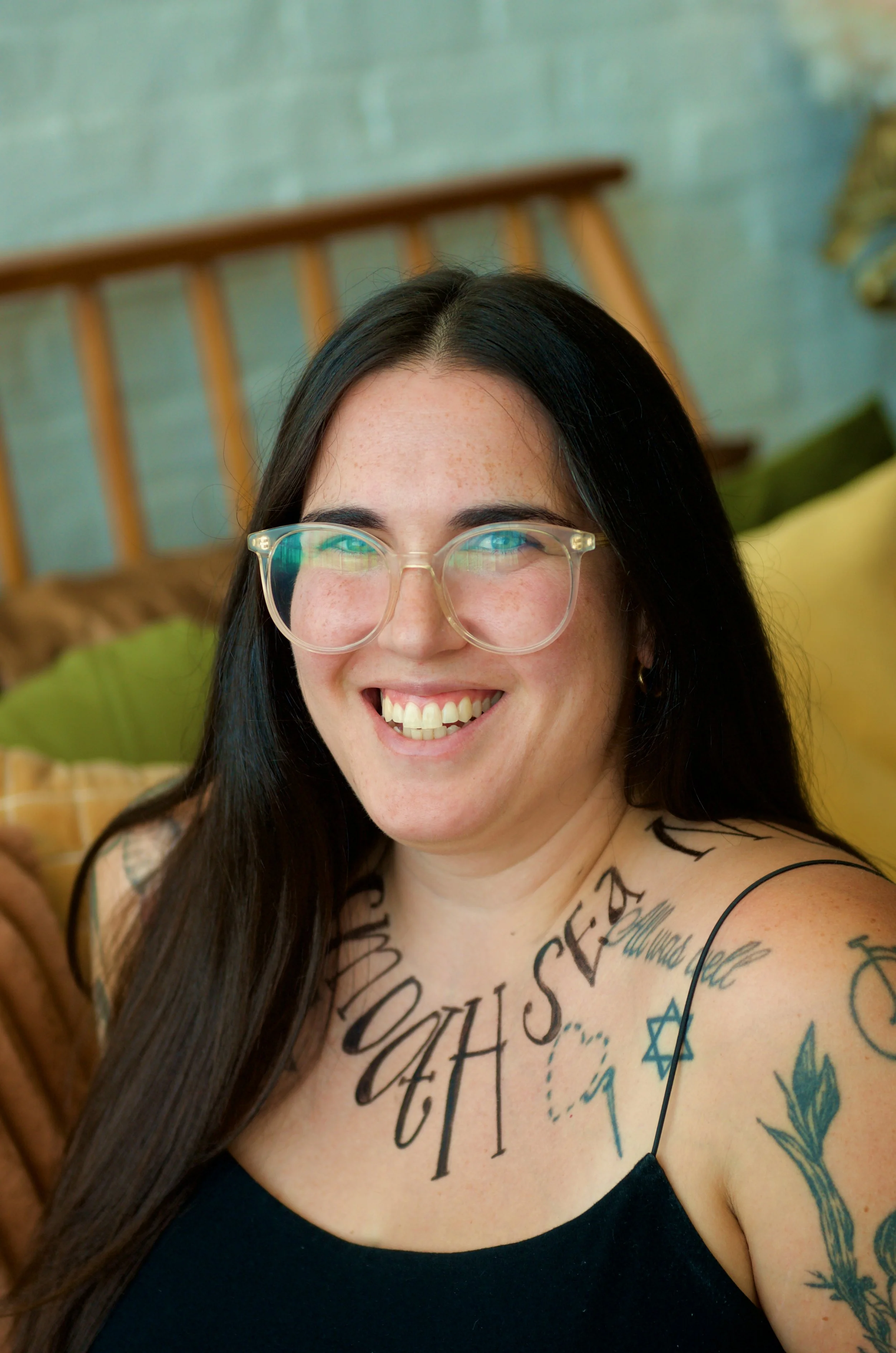Lizz
“A smooth sea never made a skilled sailor.”
-Franklin D. Roosevelt“A smooth sea never made a skilled sailor.” When I first saw this quote, I made it the background of my phone. I was in my early 20s, and I was in a job with an abusive boss. I still have nightmares about her. She was frequently putting me in positions that I knew were wrong. She would want me to lie to people over the phone, for instance. And I was young; she was much older. I didn’t know enough to say, “I’m not doing this.” I would have such internal turmoil about these things. To get up and keep going to work, I needed some motivation. And that’s when I found this quote. I don’t think I internalized this at the time, but looking back, it was like, “You’re going to learn something at the end of this.” And I did. I feel like this quote relates to every single part of my life. Retroactively and now.I had a great childhood. I have three younger brothers; I’m the oldest. But also, growing up, I felt like I never fit into the box that everyone else fit into. For one thing, I have literally always been overweight, from childhood to adulthood. I also think I must have gone through precocious puberty before that was talked about as a thing. I’ve had boobs for as long as I can remember. While all the girls around me were wearing things like Limited Too, I basically aged out of Limited Too in fourth grade. I grew up in Cherry Hill, NJ, which is pretty mixed economically, but we were on the… we didn’t have a shore house, you know? Even that little distinction was enough to be like, “Well, I’m on this side of the group, and everyone else is over there.” So it was like, “I can barely fit in the juniors section, and you’re all a size zero. You can all shop at Abercrombie, and I can’t, because we can’t afford it, and because I can’t fit in it.” I had to find other ways to fit in, and I think that’s why I developed a good sense of humor. I may not have those other things you have, but it’s ok, because I’m making you laugh.Humor is used a lot in my family. I think sometimes when life is sad or gross or horrible or hard, finding some humor can make it a little less hard. I remember when my grammy was dying, we were all standing around her. I guess they had taken her dentures out. And my younger brother has always been into reptiles, so my dad goes, “Look! She looks like a snapping turtle.” In that moment, we all needed him to do that. Because it sucked, and it was sad, but we were also able to laugh, and it reminded us that we’re still going to be happy. She would have laughed at that. And that’s life. You can laugh about it, and you can be sad about it; it doesn’t just have to be one or the other. I think my dad knowing that everyone would be ok with a joke like that in that moment - that’s love to me. He knew what we needed. And I feel like it highlights that nothing is black and white. That’s something I keep circling back to, especially in the last couple of years. I talk about it a lot with my therapist. Literally everything is nuanced, and that’s ok. That said, if there’s one thing that I would like to do differently than my parents, it’s access vulnerability a little more easily. For us growing up, everything was behind five layers of irony, and I’d like to change that for my girls.I went to therapy for the first time after my oldest daughter was born, but I had been struggling with anxiety for a long time before that. My anxiety has felt different at different stages in my life, but I think it started right after I left college. I had gone to Temple for a year, thinking I was going to go into their nursing program. But I was so depressed. I was so not ready to go away. I still don’t know exactly what happened. There was a lot of interpersonal stress. By the second semester, I felt like I had messed everything up. I thought, “This is it for sure, this is going to be the rest of my college experience. I can’t do this anymore.” I was so depressed. Now, looking back as an adult, I think, “You probably could have figured it out.” But I mean, you don’t know what you don’t know.So, I came home. And I remember I had my first panic attack right at home in my parents’ house. I suddenly felt like, "I can't breathe!” It was a really stressful and difficult time. Part of it was probably that I had just come off of 12 years of a very predictable routine. I don’t think I had any coping skills, so of course it was going to go badly. I also really feel like I was probably depressed for a lot of my childhood and didn’t know it or have a word for it. I remember always feeling… the word we used was “moody,” but looking back I think, “You were kind of depressed.” Not for any particular reason, I think it was just my brain chemistry.The first time I went to therapy, it was ok. But I found myself saying what I thought the therapist wanted to hear. I wanted to be the star therapy student. But of course that’s just fake, you know? And then once my second daughter was born, I was like, “I need to go back to therapy and be 100% honest.” And my most recent therapist is amazing - she’s 26. I call her my 26-year-old emotional support person. She’s really good; I really like her. One of our refrains is, “More than one thing can be true.” When I had Bea, my oldest daughter, in the grand scheme of births, it wasn’t the hardest birth ever. But it was my first time giving birth, and I had a third degree tear, which was horrific. I was in so much pain. But despite the pain, I also remember thinking, “I feel like I can do anything.” I can still remember that feeling exactly. I was in the hospital room, I was in so much pain, Bea was crying, I was rocking her, my husband Colin was asleep, and I thought, “I can do anything.” Sometimes I still go back to that little seed of a moment and think, “You can do anything,” and it’s true. I also would do anything for both of my kids. But my experience with my second pregnancy and everything that came after was a lot more challenging.I started taking Lexapro when I was 21. I remember I started it after a trip to Israel. I was struggling with my panic attacks, and I remember on the paper I put into the Western Wall, I wrote, “Please, let me find peace.” I was so desperate. I had a huge panic attack in Israel. I had to call my mom in the middle of the night saying, “I’m going to die here.” And she was like, “No you’re not, just breathe.” I didn’t have any tools to get through it. But that’s what led me to feel like, “I think I need an SSRI. I need more help than I’m getting right now.” And Lexapro was great. It got me through that terrible time to a better place. That period lasted for a while. I got married, I had Bea… there was a calm placidness. But then, in my pregnancy with Ivy, Lexapro stopped working. I once again started having the most intense panic attacks and anxiety. It was horrible. It feels like you’re dying. At one point, we had to call an ambulance at work because I really did think I was dying. I was having them nightly. I would be up in our apartment, pacing back and forth, again calling my mom in the middle of the night. She’s still really good at calming me down, and Colin’s very good about it as well. But it was horrible. Ivy’s birth was actually a great birth; it kind of made up for Bea’s birth a little bit. It was fun, and it was joyous. But Ivy had reflux, and she would not eat. She would just scream this scream cry. Colin eventually went back to work, and Bea went back to school, and it was just me and Ivy all day, with her screaming the whole time. If Colin was gone for 8 hours, she would scream for 8 hours. It was horrible. And on top of that, I was still having panic attacks, and I started developing intense and scary intrusive thoughts, so we started changing my medication. I had never had brain zaps before then, but they started as I was coming off Lexapro. So I was postpartum with this screaming, crying baby, I still had Bea in different activities because I wanted her to be a well-rounded child, so I would be driving her around crying because I would get these intrusive thoughts like, “What if I die, and I leave these girls?” and then I would have these brain zaps, and it was like I was a zombie. I felt like I was being carried through the world just with my muscles and no brain attached.On top of that, I developed acid reflux, which I had never had before. I started feeling things around my heart, which was often the trigger of my panic attacks. So now I have this thing where I constantly have a sensation here… not really a pain, just a feeling. And I thought, there are not enough drugs in the world to help me right now. I have to go to therapy to find the tools to get through this.It was also a time when Colin and I were at our worst. Life was really hard. I felt like I was failing both of my kids, because neither one was getting the best version of me. It was the hardest time of my life, for real: from pregnancy with Ivy until she was about 6 months old. Then I finally felt myself starting to come out of it.Work was my happy place. Talk about a community. It was a community of women, including the parents coming in, not just the teachers, who all understood exactly what I was going through. Everyone had a story about a difficult baby. Everyone had a story about an anxiety attack. Every single person at that school, no matter if they were older than me or younger than me, understood me, heard me, didn’t think it was silly, had empathy for me, shared their own story. It was the happiest place I could be. Even some of the security guards were so supportive and helpful. One of them has five daughters. And he would be like, “You’re a badass.” And I would be like, “Thank you.” It is just the most supportive community. You know how people say they have Sunday scaries? Like the feeling of dreading going back to work? I had Friday scaries. The weekend was the worst time for me, because it meant 48 hours of this screaming baby, Bea needing my attention, and Colin and I not aligning. Monday it would be like, “Ah. I’m back with these women who get it and hear me and know.” Some people’s reaction was to offer solutions, and I loved that. Some people would just listen, and I loved that. Some people shared their own stories, and I loved that. It was such a safe space. Literally if it wasn’t for work and my therapist… I don’t know if I could have gotten out of it as quickly as I did. When your baby cries all day, you’re always in fight-or-flight mode. You can’t get a break. It was a perfect storm. It was insane. With Bea, I dreaded going back to work. But with Ivy, I just couldn’t do it alone at home anymore. I went back to work early from maternity leave. And I’m telling you, the only thing that got me through it was working in a building full of women. The value of being seen is immeasurable.I also took a break from social media. There's no nuance anywhere on there. I honestly think the algorithmic timeline is why the country is the way it is right now. You know when Instagram first came out, and you would just see your friends? At the end it would say, “There’s nothing else to see here.” Well, now you can scroll endlessly, and it will show you things it thinks you want to see, so you never see any other perspective. That’s not good for anyone’s psyche.Online, it’s easy to think that everyone has a perfect experience in motherhood. So when it’s not like that for you, it can be so isolating. I’m not barefoot in a white linen dress picking apples with my baby. But we’re seeing that on a screen and thinking that this is what motherhood should look like. We think it must be 100% true because we’re seeing it.I also started seeing the toxicity with parenting advice. Eventually I was like, “This is not working for me.” I saw myself failing if I wasn’t perfectly executing gentle parenting techniques. At one point, I thought, “I need to redo everything my parents did and do it better.” I got very sucked into “social media parenting.” But then I realized, “Well, what actually was the problem with the way my parents raised us? I actually think they did such a good job.” I look back at my childhood and feel like it was fun. We’re not traumatized. We’re all still so close. We’re going on a family vacation next week - all of us - and we still do that every year, even with kids, even with spouses. So I think, “They must have done something right, you know?”I am also very into feminist theory, and what I’ve noticed is that when you engage with that on social media, it kind of turns into, “This is why you need to hate your husband.” The more you engage with posts like, “This is why the patriarchy is bad for everybody,” the more it turns into “weaponized incompetence is so insidious” and blah blah blah. In therapy and in marriage counseling, I started realizing, “Oh wait, I think I’m assigning things to Colin that have been shown to me online but that aren’t actually my reality.” And it feels that way with parenting too. But there’s a whole side of TikTok like, “You should hate your husband because he’s a man and his life has been easier.” What?! Maybe in a vacuum that’s true, but this is a person I know and love, and I want to make it work with him, so why… It just seems so black and white, social media. It’s the same with breastfeeding. Online, they make you feel like if you say, “I formula feed,” in person to someone, they will say, “You evil woman… What are you doing?” But every single woman I talk to about my breastfeeding journey, they all get it. Everyone gets it. Whether it works well for them and they’re a milk machine, or if they hate it, or anything in between, everyone gets it. Everyone’s like, “Yup, that works for you, this works for me, we love our babies, and they’re fed.” I’ve found that people who criticize in real life are very few and far between.Everyone says everything with such confidence on social media, so it’s easy to think, “This must be right.” But they’re just a random person making a video. The reality is, they’re not an expert. And even when they are an expert… take Dr. Becky. She has good ideas. But she’s one person. There can always be another psychologist with a different take.Obviously, I bring this all to my emotional support 26-year-old, and we talk about it. She gives me CBT skills. I’m a very visual learner, I think. Now when I get anxious about something, I’ll list the facts. Like, if I make a mistake at work, I’ll think, “I FEEL like they’re saying, ‘You suck and you’re going to get fired; you’re a failure.’ But that’s not a fact. What’s the reality? The reality is, you say, “Ok, got it.” And you learn, and you don’t make that mistake again. Or maybe you do make that mistake again, but it’s ok.” My brain always jumps from, “This happened,” to “What’s the worse case scenario?” I have to slow myself down - nothing is that black and white, it’s all nuanced.I always say I talk myself off the ledge. I say that all the time. But I started going down to biweekly therapy instead of weekly, because I’m getting better at applying these skills on my own. I’m doing the work. For instance, I recently went out to visit my brother and sister-in-law in Arizona. And I don’t love flying. But I was able to keep challenging my thoughts on the flight. And I was like, “Girl! You really learned something in therapy,” you know? I just kept telling myself, “No. Everything’s alright. You’re ok.” Seeing it in action, is… I love it. I love therapy.I can also see it having an effect in real time in my marriage. Now I can feel myself go, “Pause, why am I thinking this?” It’s helped a lot. If I’m mad at Colin as a knee-jerk reaction, I can tell myself, “Let’s think about this before you say anything.” And by the time I’ve thought it out, I usually get to, “It’s ok, you’re good.” Or if not, then I have a more exact thing that I can bring up, it’s not just my knee-jerk, “Why are you doing this?” reaction. I can feel my brain doing the thing that I never would have done before. It’s awesome.Often in the moment, my fears feel huge. But now in my mind, I will always try to think about what they will be like in two weeks. In two weeks, this will be nothing. So small. And also in those two weeks, I’ve learned something from this. Whatever it was. Whether it’s an interaction with someone, whether it’s in my marriage, whether it’s Ivy, whether it’s with my family… In the moment, it’s so big and heavy, but then after that, you have learned something new that’s now a part of you. And the bad feelings you had at first you can’t even access anymore. But you can always access the lesson you learned. And that’s why my quote resonates with me. “A smooth sea never made a skilled sailor.” There are moments where life is going to be hard, but I think we can gain something from every hard time. I think getting to that understanding is the key to growth as a person.
